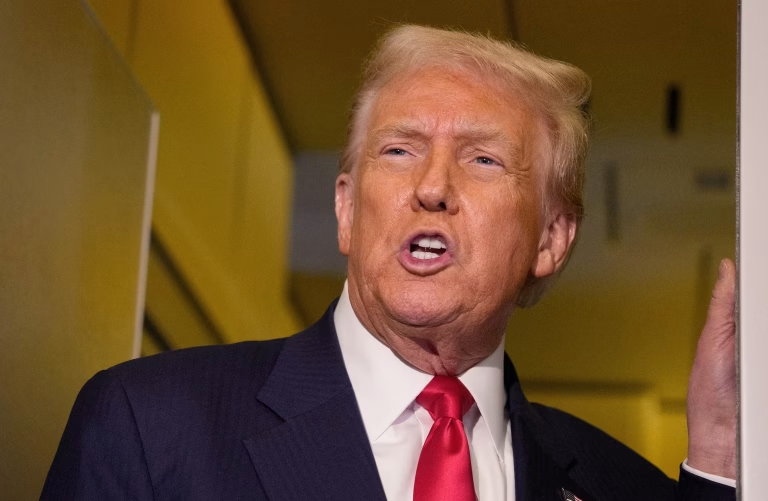
More Nigerian medical practitioners may leave the country as the United Kingdom yesterday announced new ‘Health and Care Visa’ policy to attract the best talents in Nigeria and other parts of the world.
The country, which has since the outbreak of COVID-19 stopped issuance of visa, opened the migration window for care professionals, social workers and their families, to bolster its National Health Service (NHS).
The new visa policy aims to make it cheaper, quicker and easier for healthcare professionals to come go to UK, beginning from August.
Findings show that UK is one of the leading destinations for migrating Nigerian health workers. Estimates have it that there are over 4000 Nigerian doctors in UK, spread across 83 sub-specialties.
Just recently, the Nigeria Immigration Service (NIS) at the Murtala Muhammed International Airport (MMIA) Lagos, intercepted 58 Nigerian doctors, who attempted travelling to UK without visa.
The 58 medical doctors were refused departure in line with Section 31 subsection 2a and b, on powers conferred on the Comptroller General of Nigeria Immigration Service by the Immigration Act 2015, to prohibit departure of any person under the conditions stated in the Act.
The doctors were said to be travelling for a training programme.
The UK Home Secretary and Secretary of State for Health and Social Care had on Tuesday announced that the new Health and Care Visa would be launched this summer, creating a new fast-track visa route for eligible health and care professionals and delivering on a key manifesto commitment.
According to details of the statement, it has been designed to make it easier and quicker for the best global health professionals to work in the NHS, for NHS commissioned service providers, and in eligible occupations in the social care sector.
It further said that the legislation needed to open this new route would be laid in Parliament and health professionals would be able to apply from August.
The UK government statement said that the new Health and Care Visa would come with a reduced visa application fee compared to that paid by other skilled workers, including exemption from the Immigration Health Surcharge.
Health and care professionals applying on this route can also expect a decision on whether they can work in the UK within just three weeks, following biometric enrollment.
“Those working in health and social care, who do not qualify for the Health and Care Visa, will still be able to claim a reimbursement from the Immigration Health Surcharge, if they have paid this on or after March 31,” the statement added.
UK Home Secretary Priti Patel said: “We are indebted to overseas health and care professionals for their tremendous contributions, not just in saving thousands of lives throughout this crisis, but for the vital role they play year-round”.
She added that the Health and care professionals from all over the world have played a vital role in hospitals and care homes across the country fighting coronavirus.
“The introduction of the Health and Care Visa follows a number of unprecedented measures to show the UK’s gratitude to health workers from overseas,” she said.
Medical experts, in separate conversations with The Guardian, warned that despite the turning back of some 58 UK-bound doctors at the airport by the NIS, more of their colleagues and other health workers were set to leave the country.
They blamed the situation on poor working conditions and environment, lack of work opportunities, rising living cost, high taxes and deductions from salary, low work satisfaction, poor salaries and emoluments.
They said for some others, frustrations and despair about the devastation of family life, crime, insecurity, personal health and concerns about the education of children are enough reasons to pull up stakes and leave the shores.
They said most healthcare facilities do not have functional equipment thus, Nigerian doctors work blind. They noted that more Nigerian doctors were going to leave for overseas owing to global COVID-19-induced shortage of medical personnel and the fact that many countries were attracting medics with mouth-watering packages.
It is believed that, for health workers, specific advantages come with searching for greener pastures abroad. In 2018, a total sum of $25 billion was remitted to Nigeria from the Diaspora, constituting a whopping six per cent of Nigeria’s Gross Domestic Product (GDP) and the equivalent of 83 per cent of the country’s total national budget for that year. The sum was more than Nigeria’s combined total earning from oil and gas for the same year.
Experts, however, said the 58 doctors that were stopped last week at the airport by NIS have left the country again. A Consultant Paediatric Surgeon and Chief Medical Director (CMD) of Lagos University Teaching Hospital (LUTH) Idi-Araba, Prof. Chris Bode, told The Guardian that emigrating health workers were of special concern for four reasons: “We do not have enough workers in this vital sector. We make huge investments to produce them. Richer nations simply harvest these workers free from our system. We seem powerless to stop the trend.”
Bode said popularly quoted figures indicate that about half of Nigeria’s estimated 72,000 registered doctors practice abroad. He said the trend seems to have escalated lately, with both fresh graduates and those already in the residency-training programme fleeing in droves. The surgeon said the country could not meet its sectoral goals in healthcare if principal actors abandoned the theatre of operation for greener pastures.
With doctor-to-patient ratio of 1:4000, as against the World Health Organisation (WHO)-prescribed ratio of 1:600, it has been said that “assuming no doctor leaves this country after being trained, going by the number coming from our medical schools every year, it will take us about 100 years to have the number of doctors we need.’’
Why do Nigeria’s medical health workers leave? Bode said skilled manpower emigrates mainly because of economic instability and poor labour conditions in their native country which seem to “push” them out, unwanted, unappreciated, unrewarded, into the hands of advanced economically prosperous nations, which “pull-in” such skilled labourers, especially because the number of working-age people is already shrinking in many such latter countries. He said in support of this is the high fertility rate in the midst of developing nations’ poverty as compared with the zero or negative population growth in the affluent, advanced countries.
The surgeon said with the ongoing Brexit imbroglio and its uncertainties, many healthcare workers from the European Union fled the uncertainties in the UK. He said a British Medical Association (BMA) survey of more than 15,000 General Practitioners (GPs) found that nine per cent of GPs hope to leave the UK to work overseas in the next five years.
Amongst GP trainees, this figure was even higher at 21 per cent. Bode said these gaps have been an opportunity for Nigerian healthcare workers to exploit and account for the bulk of doctors, nurses and other healthcare workers presently heading for the UK. The surgeon said it is projected that the shortage gap for nurses in the USA will rise from a 2015 figure of 20 per cent to 28.8 per cent by next year.
Medical Director of Medical Art Centre (MART) Maryland Ikeja, Lagos and Joint Pioneer of In Vitro Fertilisation (IVF) in Nigeria, Prof. Oladapo Ashiru, said as more doctors leave the shores of Nigeria, the healthcare system is in a deficit which can negatively impact the well-being of its populace.
Ashiru said the doctors would travel at any given opportunity. “There is a craving for greener pastures abroad and the doctors are better compensated for their services there. They also have the opportunity to practice where they have the abundance of state of the art technologies,” he said. (The Guardian)







979368 780860I real glad to find this internet site on bing, just what I was looking for : D likewise saved to bookmarks . 643481